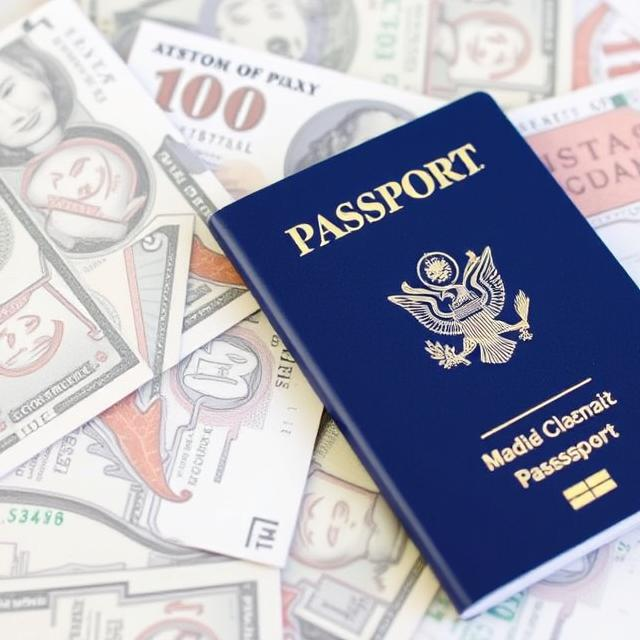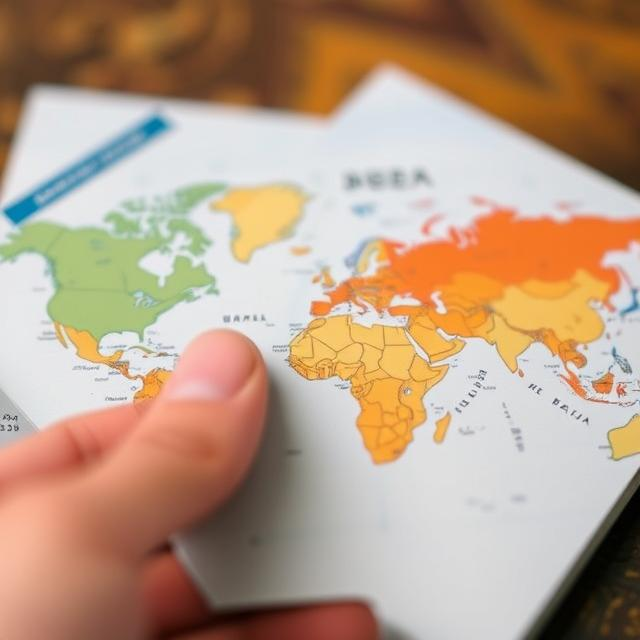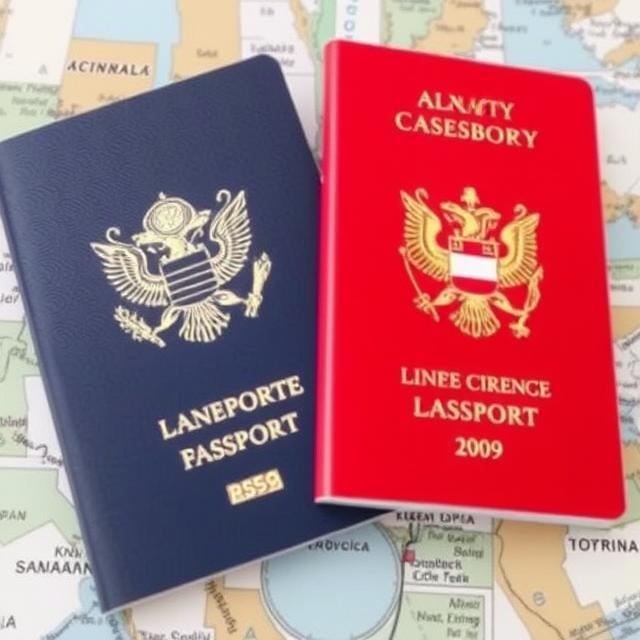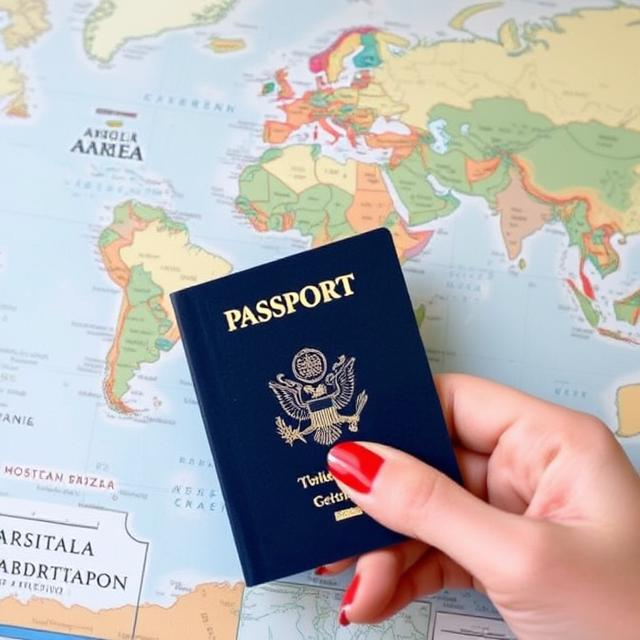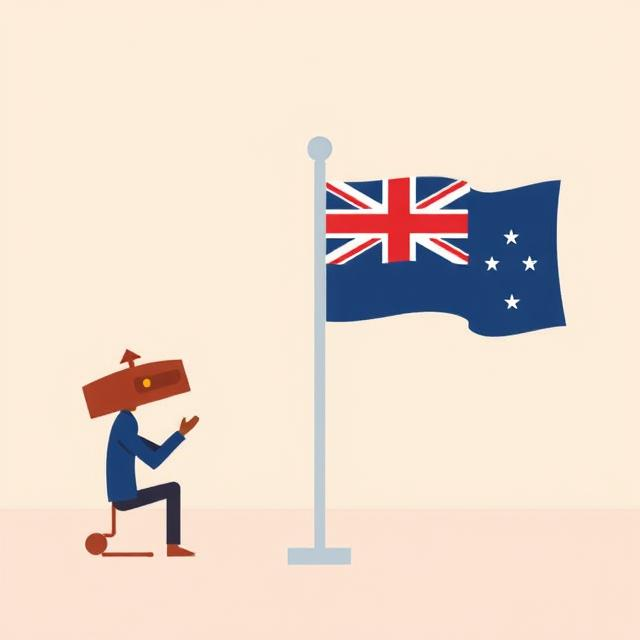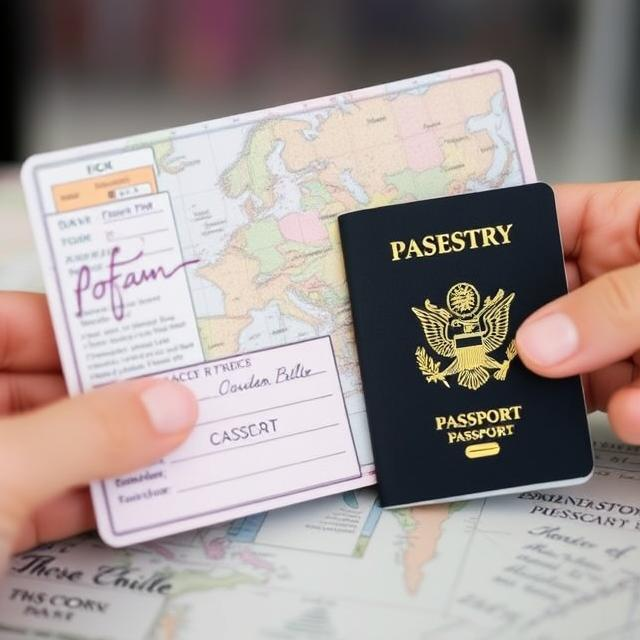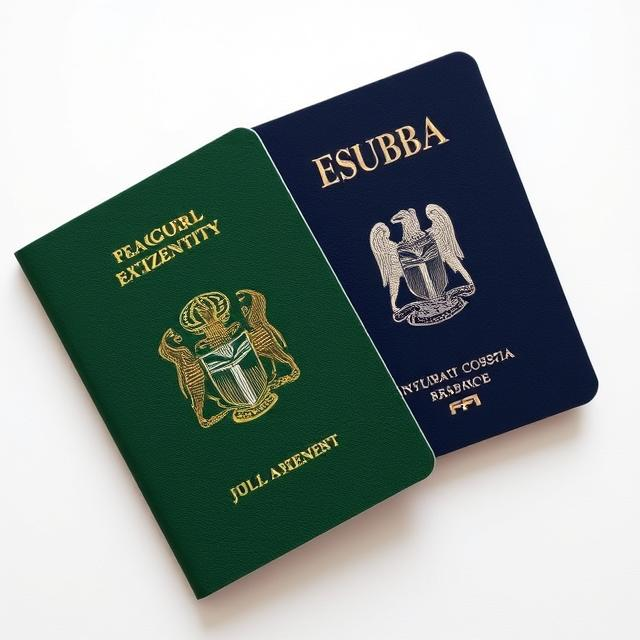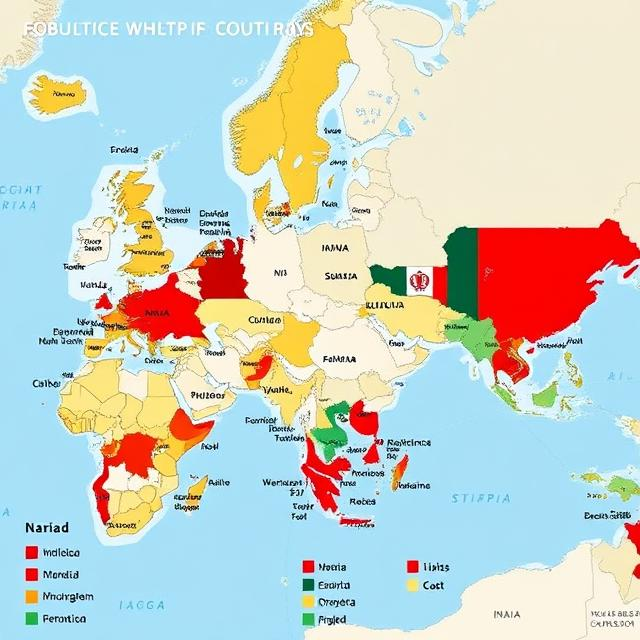Nigerians seeking international volunteer opportunities have access to several reputable programs that welcome participants from diverse backgrounds. Here are some top organizations offering such programs: 1. United Nations Volunteers (UNV) 2. AIESEC 3. Service Civil International (SCI) 4. Go Volunteer Africa 5. Health Volunteers Overseas (HVO) Considerations for Nigerian Volunteers: Engaging in international volunteer programs can be a transformative experience, offering personal growth and the opportunity to make a meaningful impact globally.
How To Avoid Scams When Applying For A Second Passport
Applying for a second passport can be a great investment, but it also comes with risks, including scams by fraudulent agencies and individuals. To protect yourself, follow these guidelines when seeking citizenship or residency through investment, ancestry, or naturalization. 1. Research Government-Approved Programs Only apply through official government programs. Many countries offering second passports have official websites listing their requirements. Cross-check details on government portals before making any financial commitments. 2. Verify Licensed Agents If using an agency, ensure it is authorized by the government. Many countries, such as Saint Kitts & Nevis and Antigua & Barbuda, have official lists of licensed agents. Avoid agencies that refuse to disclose their credentials. 3. Beware of Unrealistic Promises Scammers often lure victims with fake guarantees, such as: 4. Avoid Paying Upfront Without Verification Never send money without a verified contract. Secure payments should be made to government accounts or trusted escrow services. Be cautious of requests for full upfront payments, especially via cryptocurrency or wire transfers. 5. Check Legal Documentation All legal processes should involve documented agreements. If an agency refuses to provide written contracts, legal references, or proof of government affiliation, consider it a red flag. 6. Consult Immigration Lawyers An immigration lawyer specializing in citizenship laws can help verify opportunities and detect fraudulent schemes. They can also guide you through legal procedures to avoid mistakes. 7. Watch for Fake Websites & Emails Scammers often set up fake websites impersonating government agencies. Ensure the website URL matches the official government domain. Do not click on unsolicited emails claiming to offer “exclusive” citizenship deals. 8. Verify Application Fees Check official sources for the exact costs of citizenship programs. Scammers may inflate fees or create additional charges that do not exist in legitimate programs. 9. Avoid Buying Fake or Stolen Passports Some scammers sell counterfeit or stolen passports that can lead to criminal charges and travel bans. Always go through legal channels to obtain citizenship. 10. Stay Updated on Fraud Alerts Governments and financial institutions regularly warn about fraudulent citizenship schemes. Stay informed by checking updates from organizations like the European Union, the U.S. State Department, and Caribbean government websites.
The Cost Of Acquiring A Second Passport: Is It Worth It?
Getting a second passport can be a life-changing decision, offering benefits like increased travel freedom, business opportunities, and better security. However, the cost varies significantly based on the method of acquisition—Citizenship by Investment, naturalization, ancestry, or residency programs. Here’s a breakdown of the costs and whether it’s worth the investment. Methods & Costs of Acquiring a Second Passport Citizenship by Investment (CBI) Some countries offer fast-track citizenship in exchange for investment. Saint Kitts & Nevis – Minimum investment of $250,000 (donation) or $400,000 (real estate), processing time of 3–6 months, visa-free access to 150+ countries, including the UK and EU. Antigua & Barbuda – Minimum investment of $100,000 (donation) or $200,000 (real estate), processing time of 3–6 months, visa-free access to 150+ countries, including the Schengen Zone. Dominica – Minimum investment of $100,000 (donation) or $200,000 (real estate), processing time of 3–4 months, visa-free access to 140+ countries, including China and the UK. Grenada – Minimum investment of $150,000 (donation) or $220,000 (real estate), processing time of 4–6 months, visa-free access to 140+ countries, including China and the USA through the E-2 visa program. Malta – Minimum donation of €600,000+, processing time of 12–36 months, visa-free access to the EU, UK, and USA. Turkey – Minimum real estate investment of $400,000, processing time of 6–12 months, visa-free access to 110+ countries, including Japan and Singapore. This method is worth it for those who need visa-free travel, investment opportunities, or a strong passport. It may not be ideal for those seeking a low-cost option. Citizenship by Ancestry Some countries grant citizenship based on family heritage, often at a lower cost. Ireland – Requires a grandparent to be Irish, processing time of 6–12 months, estimated cost between $1,000 and $3,000. Italy – Requires a parent, grandparent, or great-grandparent to be Italian, processing time of 12–36 months, estimated cost between $2,000 and $10,000. Portugal – Available for individuals of Sephardic Jewish descent, processing time of 12–24 months, estimated cost between $2,000 and $5,000. Poland – Requires ancestry up to great-grandparents, processing time of 6–12 months, estimated cost between $1,000 and $5,000. If eligible, this is one of the most affordable ways to obtain a second passport. If ancestry is not an option, other routes must be explored. Residency & Naturalization Some countries offer citizenship after years of residency. Portugal – Requires five years of residency through the Golden Visa program with a minimum investment of €280,000. Spain – Requires ten years of residency, but only two years for Latin American applicants. No investment is required. Canada – Requires three years as a permanent resident before applying for citizenship. USA – Requires five years as a Green Card holder before applying for citizenship. This option is best for those who want a strong passport without making a large financial investment upfront. It may not be suitable for those who need citizenship quickly. Is a Second Passport Worth the Cost? A second passport can be highly valuable depending on personal needs and financial capacity. It is beneficial for frequent travelers, entrepreneurs seeking business-friendly environments, individuals from countries with restricted travel access, and those looking for long-term security and stability. It may not be necessary for individuals who already have a strong passport, do not travel often, or find the cost outweighs the benefits.
Legal Considerations Before Applying For Dual Citizenship
Applying for dual citizenship comes with legal responsibilities that vary depending on the countries involved. Before proceeding, it’s crucial to understand the legal implications to avoid unexpected consequences. 1. Does Your Country Allow Dual Citizenship? Not all countries permit dual citizenship. Some require you to renounce your original nationality before acquiring a new one. Always check your home country’s laws to ensure you won’t risk losing your original nationality. 2. Tax Obligations in Both Countries Dual citizenship may result in tax liabilities in multiple countries, depending on tax laws: 3. Military Service & Government Duties Some countries require citizens to serve in the military or government roles: Understanding these requirements is essential to prevent conflicts. 4. Legal Rights & Responsibilities in Both Countries Dual citizens must follow the laws of both countries. This includes: 5. Passport & Travel Considerations Many dual citizens must enter and exit their home country using that country’s passport. 6. Impact on Inheritance & Property Ownership Certain countries have laws restricting property ownership for foreigners, even if they hold dual citizenship. Inheritance laws may also differ, impacting how assets are distributed. 7. Security & Political Risks Having dual citizenship in politically unstable countries may: 8. Citizenship Revocation Risks Some countries can revoke citizenship if they suspect fraud, lack of allegiance, or national security concerns. It’s important to follow all legal procedures correctly.
How A Second Passport Can Enhance Your Travel Freedom
A second passport can significantly improve your ability to travel with ease, offering visa-free access to more countries, reducing restrictions, and providing greater flexibility in global mobility. Key Benefits of a Second Passport for Travel 1. Visa-Free Travel to More Countries Many passports require visas for international travel, which can be time-consuming and expensive. A second passport from a country with strong diplomatic ties can grant visa-free or visa-on-arrival access to more destinations. For example: 2. Avoid Lengthy Visa Applications Some nationalities face strict visa requirements that can take weeks or months to process. A second passport can: 3. Escape Travel Restrictions & Political Instability In times of political unrest, economic crises, or travel bans, a second passport provides an exit strategy. Citizens of certain countries may face restrictions, but a second passport can grant alternative entry points. 4. Access to More Business & Investment Opportunities Some passports allow easier access to international markets, enabling business expansion and investment in countries with better economic conditions. For example: 5. Better Opportunities for Relocation A second passport can provide residency rights, allowing for long-term stays, work, or study in different countries. Countries such as Portugal, Canada, and Australia offer residency and eventual citizenship pathways for those with strong passports.
Top Caribbean Countries Offering Second Passports To Nigerians
Several Caribbean nations offer second passports through Citizenship by Investment (CBI) programs, allowing Nigerians to obtain citizenship in exchange for an investment. These programs provide visa-free travel, business opportunities, and tax advantages. 1. Saint Kitts and Nevis Investment Options: Processing Time: 3–6 monthsVisa-Free Access: 150+ countries, including the UK, EU, and Singapore 2. Antigua and Barbuda Investment Options: Processing Time: 3–6 monthsVisa-Free Access: 150+ countries, including the UK and Schengen Area 3. Dominica Investment Options: Processing Time: 3–4 monthsVisa-Free Access: 140+ countries, including China, the UK, and the EU 4. Grenada Investment Options: Processing Time: 4–6 monthsVisa-Free Access: 140+ countries, including China and the UKSpecial Benefit: Eligible for the U.S. E-2 visa, allowing residency in the U.S. 5. Saint Lucia Investment Options: Processing Time: 3–6 monthsVisa-Free Access: 140+ countries, including the UK and Schengen Area Benefits of Caribbean Second Citizenship for Nigerians ✔ Visa-free travel – Easier access to Europe, Asia, and the UK✔ Business expansion – Trade and investment opportunities✔ Tax advantages – No global income tax in most Caribbean nations✔ Fast processing – Citizenship granted in as little as 3 months
Understanding The Tax Implications Of Dual Citizenship
Dual citizenship offers numerous benefits, but it also comes with tax responsibilities. The tax implications vary based on the countries involved, their tax laws, and whether they tax worldwide income. Understanding these factors can help dual citizens manage their financial obligations efficiently. Key Tax Considerations for Dual Citizens 1. Worldwide Income Taxation Some countries, such as the United States and Eritrea, impose citizenship-based taxation, meaning citizens must pay taxes on their global income, regardless of where they live. Most other countries follow residency-based taxation, where only income earned within the country is taxed. 2. Tax Treaties and Double Taxation Agreements (DTAs) To prevent double taxation, many countries have tax treaties that allow dual citizens to avoid paying taxes twice on the same income. These agreements typically provide tax credits, exemptions, or deductions. Common tax treaty benefits include: 3. Foreign Earned Income Exclusion (FEIE) U.S. dual citizens living abroad may qualify for the Foreign Earned Income Exclusion (FEIE), allowing them to exclude a portion of their foreign income from U.S. taxation. For 2024, the exclusion limit is $126,500. 4. Tax Residency Rules Even if a country does not impose worldwide taxation, dual citizens may still be liable for taxes based on tax residency. Residency is determined by: 5. Estate and Inheritance Taxes Dual citizens may be subject to inheritance or estate taxes in multiple countries. Countries like the U.S. and the UK impose estate taxes on worldwide assets, while others only tax assets within their jurisdiction. 6. Reporting Requirements Dual citizens may need to file additional financial reports, such as: How to Manage Dual Citizenship Taxes Efficiently ✔ Understand tax treaties – Check if your countries of citizenship have agreements to avoid double taxation.✔ Track residency status – Limit stays in high-tax countries to avoid unnecessary tax liability.✔ Use tax exemptions and deductions – Utilize FEIE, FTC, and other applicable benefits.✔ Consult a tax professional – A tax expert can help navigate complex tax rules and optimize tax planning.
The Process Of Getting A Second Passport Through Ancestry
Many countries offer citizenship by descent (CBD), allowing individuals to claim citizenship based on their ancestry. This means if you have parents, grandparents, or even great-grandparents from certain countries, you might be eligible for a second passport. Step 1: Determine Your Eligibility Each country has specific rules regarding who qualifies for citizenship by descent. Some countries that offer this option include: Ireland – If you have an Irish parent or grandparent, you can apply.Italy – If you have an Italian parent, grandparent, or even great-grandparent (under certain conditions), you may qualify.Germany – If your parents or grandparents were German citizens, you might be eligible.Poland – If one of your ancestors was a Polish citizen before 1920 and maintained citizenship, you may qualify.Portugal – Sephardic Jews and descendants of Portuguese citizens may apply. Research your family history and check whether the country’s laws apply to your situation. Step 2: Gather Proof of Ancestry You will need official documents to prove your lineage, such as: Birth certificates – Yours, your parents’, and your grandparents’ certificates.Marriage certificates – To show family connections.Naturalization records – If your ancestor became a citizen of another country, check if they lost their original citizenship.Passports or IDs – Any official records of your ancestor’s citizenship. If you don’t have these documents, you may need to contact archives, embassies, or genealogy services to retrieve them. Step 3: Submit Your Application Each country has its own process, but in general: Complete an application form – Available at the country’s embassy or consulate.Provide supporting documents – Birth certificates, passports, and other proof of ancestry.Pay processing fees – Some countries charge application fees.Attend an interview (if required) – Some countries may ask you to visit the embassy or consulate. Step 4: Wait for Approval & Passport Issuance Processing times vary by country, but it can take anywhere from six months to two years. If approved, you will: Receive a certificate of citizenship.Be eligible to apply for a passport.Gain rights to live, work, and travel in that country. Benefits of a Second Passport Through Ancestry Visa-free travel – Gain access to more countries.Right to live & work – Especially useful in the EU and Commonwealth countries.Backup citizenship – Useful in case of political or economic instability.
How To Obtain Dual Citizenship Legally In Nigeria
Obtaining dual citizenship legally in Nigeria is possible under certain conditions, as outlined in the 1999 Nigerian Constitution (Section 25-27). Here’s how you can legally acquire dual citizenship in Nigeria: 1. By Birth (Automatic Dual Citizenship) 2. By Naturalization (For Foreigners) If you are a foreign national and wish to acquire Nigerian citizenship while retaining your original nationality, you must: However, Nigeria does not allow dual citizenship for individuals who acquire Nigerian citizenship through naturalization. You must renounce your original nationality unless your home country permits dual citizenship. 3. By Registration (For Nigerians by Descent) 4. Retaining Nigerian Citizenship While Acquiring Another 5. Renunciation or Restoration of Citizenship Key Points to Note ✅ Dual citizenship is legal for Nigerians by birth.✅ If you acquire Nigerian citizenship through naturalization, you must renounce your previous nationality.✅ If you are a foreigner and want Nigerian citizenship while keeping your original nationality, you must have Nigerian ancestry.
Countries Offering Citizenship By Investment Programs
Several countries offer Citizenship by Investment (CBI) programs, allowing individuals to obtain citizenship through financial investments in the country. Here are some notable ones: These programs offer attractive benefits, such as visa-free travel to various countries, tax advantages, and the ability to establish a second home or business. However, they come with specific financial and procedural requirements, so it’s important to consult with professionals specializing in immigration and investment law when considering them.


